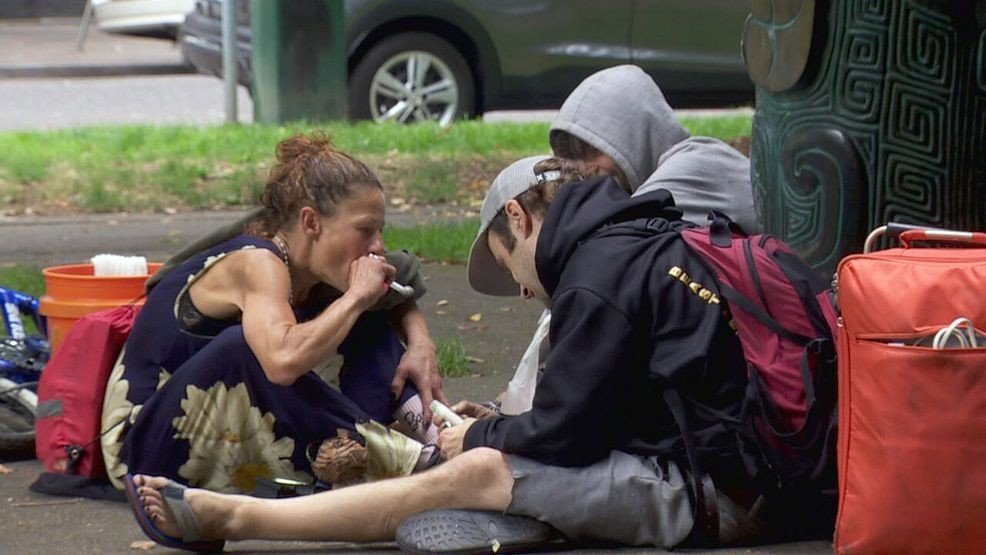New deflection program challenged by lack of detox facility space in Multnomah County


PORTLAND, Ore. (KATU) — The detox centers in Multnomah County are at or near capacity, according to a county spokesperson.
READ MORE | PPB arrests 14 for DUII over holiday weekend, issue more than 120 citations
The centers play a key role in the county’s new deflection program which started Sunday, in conjunction with a new state law, House Bill 4002, which recriminalized small amounts of hard drugs.
The law allows the counties to apply an optional deflection program, giving people caught with drugs the opportunity to access detox services, instead of going to jail, if they meet certain criteria.
Since Sunday, police have identified a handful of people who qualify, but only one was able to get into a detox center due to capacity issues.
“We don’t have enough beds licensed in our tri-metro area to support any increases in our demand for our services,” said Joe Bazeghi, director of engagement at Recovery Works Northwest. “So for deflection, we’re going to need to be really strategic about the use of our constrained resources.”
Multnomah County has 105 detox beds across its three centers, and all are at or near capacity.
Recovery Works Northwest has 16 beds. Fora Health has 24 beds. Hooper Detox Stabilization Center has 65 beds.
“We serve approximately 2,000 to 3,000 people annually and unfortunately have to turn nearly 60% of folks,” said Laura Recko, associate director of communications at Central City Concern, which runs the Hooper Detox Center. “The need in our community is dramatic. An average stay is three to five days. CCC does our best to transition folks to housing if it’s available; however, we’re not always able to, so unfortunately, some folks are returning to houselessness because there aren’t enough residential beds in our community.”
At Recovery Works, Bazeghi said he believes in the deflection program, but he said the window of time in which someone agrees to get sober is narrow, and without enough beds, he fears they’ll lose more people.
“If someone’s ready for withdrawal management, a two-day waitlist is unacceptable, can be fatal,” he said.
Data from the county shows that from January to August of this year, 506 people died from confirmed or suspected drug overdoses. This is only a few less than the same time frame in 2023, in which 527 people died.
Bazeghi said the county and the state missed the opportunity to get ahead of the fentanyl epidemic. He said it’s going to take more than adding detox beds to catch up, but also longer-term solutions.
“Ongoing care is critical,” he said. “We need investment across the continuum of care.”
With 105 beds, Multnomah County makes up about one third of the state’s 309 detox beds.
A county spokesperson says an additional 13 to 16 beds are expected to become available in 2025.




